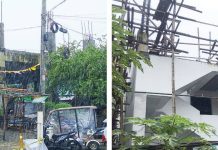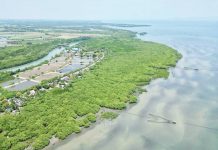
BACOLOD City – A sugar mill based in Silay City, Negros Occidental has intensified its campaign against the red striped soft scale insect (RSSI), a growing threat to sugarcane planters in the province.
Since June, Hawaiian-Philippine Company’s (HPCo) technical team, led by Chairman Paul Andrew Curran, has been working to develop an organic solution tailored to varying levels of infestation.
Supporting the effort were Israeli agricultural experts Yael Skutelsky and Nina Lehmann, who visited Negros from August 10 to 16 to share their expertise in biological pest management and help refine the treatment protocol.
The resulting procedure involves a cycle of assessment, spraying, and monitoring to gradually reduce RSSI while protecting populations of beneficial insects. Initially tested in HPCo’s own fields, the method has since been extended to nearby cane farms.
“The use of organic solution in RSSI-affected sugarcane will not kill beneficial insects. It disrupts pest growth and suppresses reproduction, lowering the ratio of RSSI to a level that natural predators can manage,” explained Rodeo Suating, HPCo’s CoGen head and regulatory compliance officer, who also leads the technical team.
RSSI infestations typically begin along field perimeters, within five meters of roadsides and edges, causing yellowing leaves, stunted cane height, and shortened jutes. The insect’s life cycle starts with instar nymphs as early as two to three months after planting, with both young and adult scales most visible from the fourth to tenth month.
Under the new protocol, farms undergo an initial assessment before the first round of spraying. This is followed by a second evaluation and application to reinforce results, and a final assessment to ensure the pest population is reduced to levels that allow beneficial insects—such as ladybugs, lacewings, and spiders—to thrive and naturally control RSSI.
HPCo will provide the organic solution to affected farms, while planters’ associations will handle assessments, spraying, and de-trashing in strict adherence to the protocol.
“This is the most affordable option compared to commercial pesticides, which also wipe out beneficial insects. Our protocol is available for all planters in our mill district affected by RSSI,” Suating added.
In collaboration with local government units and planters’ associations, HPCo, one of the country’s pioneering sugar mills, committed to distribute the initial dose of organic solution free of charge to affected farms in its mill district, particularly in Silay City and E.B. Magalona./PN






